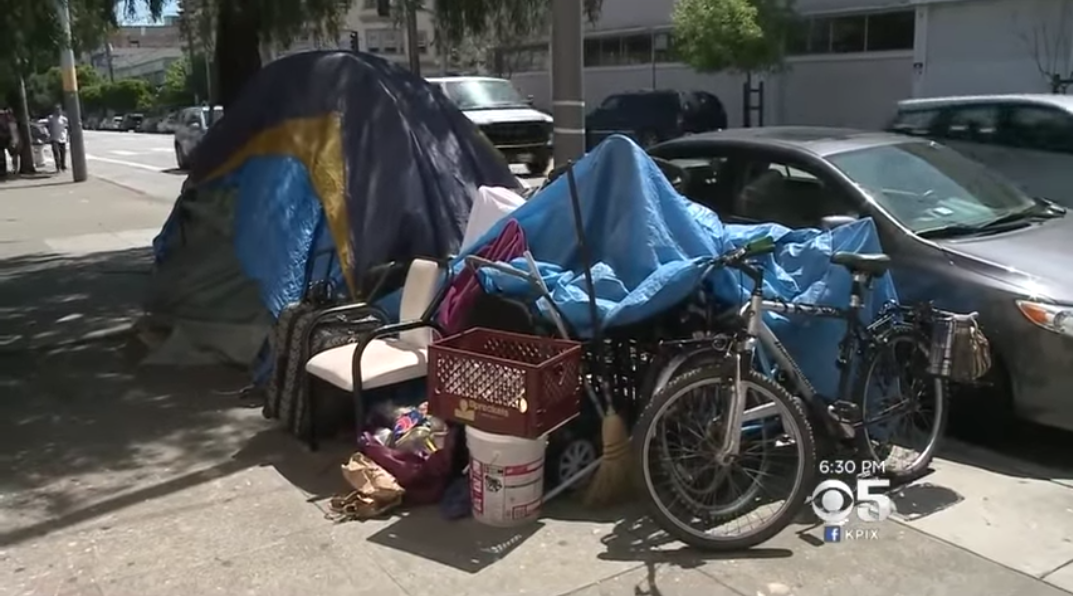
Los Angeles Mayor Eric Garcetti. (Photo: Kevin Sanders for California Globe)
Feds Stepping in on California’s Homeless Crisis
Los Angeles first city to announce ‘joint plan’ with HUD to erect temporary shelters
By Katy Grimes, January 25, 2020 8:10 am
Los Angeles Mayor Eric Garcetti announced Friday that he and the federal government have reached a preliminary agreement with the Trump administration on a joint plan to help combat the city’s homelessness crisis by erecting temporary shelters.
There has been much speculation in recent weeks that the Secretary of Housing and Urban Development Ben Carson has exerted a great deal of pressure on Garcetti and other big city California Mayors to act swiftly on temporary shelters.

Earlier this week, Dr. Drew Pinsky, Los Angeles radio host, media personality, and physician and addiction medicine specialist, was the keynote speaker at Sacramento’s State of Downtown. Pinsky has long attributed California’s homeless explosion to a mental health crisis, as well as caused by many overlapping state and local political policies which decriminalized many felony crimes.
While most of the Sacramento media reported that Pinsky was complimentary to Sacramento’s Mayor Darrell Steinberg for announcing he would adopt the San Antonio, Texas Haven for Hope model of homeless shelter and services, there was a real change-of-tone with the Mayor.
Steinberg, who co-chairs Gov. Gavin Newsom’s state-wide task force on homelessness, has previously dismissed many recommendations of Haven for Hope as the best model to address and start reducing homelessness in the city. Steinberg, along with Garcetti, was a staunch “housing first” advocate.
The Newsom administration has repeatedly claimed the explosion of drug-addicted, mentally ill people on the street is a housing shortage and housing affordability problem.Housing may be one part of the problem, but lack of housing is not at the root of the hundreds of thousands of drug-addicted mentally ill people living on city streets, in public parks, along rivers and parkways and in tent cities.
In 2019, Gov. Newsom announced the formation of the Homeless and Supportive Housing Advisory Task Force and its co-chairs, Sacramento Mayor Darrell Steinberg and Los Angeles County Supervisor Mark Ridley-Thomas, “two city leaders from cities ravaged by homelessness, filth, and disease.”
Last year I interviewed Dr. Ben Carson, U.S. Housing and Urban Development Secretary, about HUD’s approach to decreasing homelessness in cities throughout the country. Housing is one big problem in California, but he said that California is not approaching the homeless and transient problem correctly by allowing the massive tent cities to flourish; he said it costs cities less to get the homeless off the street than to deal with filthy homeless encampments and the ensuing health and disease concerns. Dr. Carson is also a believer in not making the homeless too comfortable. “Compassion means not giving people ‘a comfortable setting that would make somebody want to say: ‘I’ll just stay here. They will take care of me,’” Carson told the New York Times last year.
We also discussed the Haven For Hope, in San Antonio, Texas, a model holistic homelessness program using public and private funds, which addresses all of the issues surrounding homelessness. Haven for Hope, which is listed and rated on Charity Navigator and Guidestar, provides short-term residential housing on-campus, substance abuse, mental health treatment, employment services, education services, life-skills training, legal services, childcare, health care, even an animal kennel, and housing. But they require accountability, and getting off drugs and alcohol.
Dr. Drew Pinsky asks when will enough be enough with three homeless people a day dying on the streets of Los Angeles. In Sacramento, he said one homeless person a day is dying. “It’s a slow genocide,” he said during his speech at the Sacramento event. “So, what’s the body count need to be before you make a change.”





Wow, great news! Will be riveted to see what happens now with this new development: The potential for a more appropriate, rather than an irrelevant (Housing First, $700K per unit), response.
Katy Grimes (and Michelle Mears, Ramona Russell), Edward Ring, and Dr. Drew Pinsky (and others that don’t immediately come to mind!) have been like a dog with bone on this issue and deserve major credit for any progress we may now hope to see on it.
Our organization, long (16 years) advocating for removal of the homeless camping on the American River Parkway, initially, have been advocating a Haven for Hope model for Sacramento for years.
Hopefully, it might finally happen.
I agree with the thought that, temp housing will not solve the homeless problem. It will make it more comfortable and easy for them to remain homeless. And it does nothing for their personal addiction or illness. Now all this assumes they want to give up their addiction, or are aware of their mental disorder. State mental and health Instatutions with train medical staffs are a better investment in this situation. Bandaid fixes are not the answer temporary or long term. The ” temporary quick fix” model this state takes towards most problems has done little and accomplished nothing. But that’s a separate issue that needs addressed by the public tax voter.
Face if the billionaire west coast liberals don’t car they could solve this in a week but they are selfish and extremely greedy